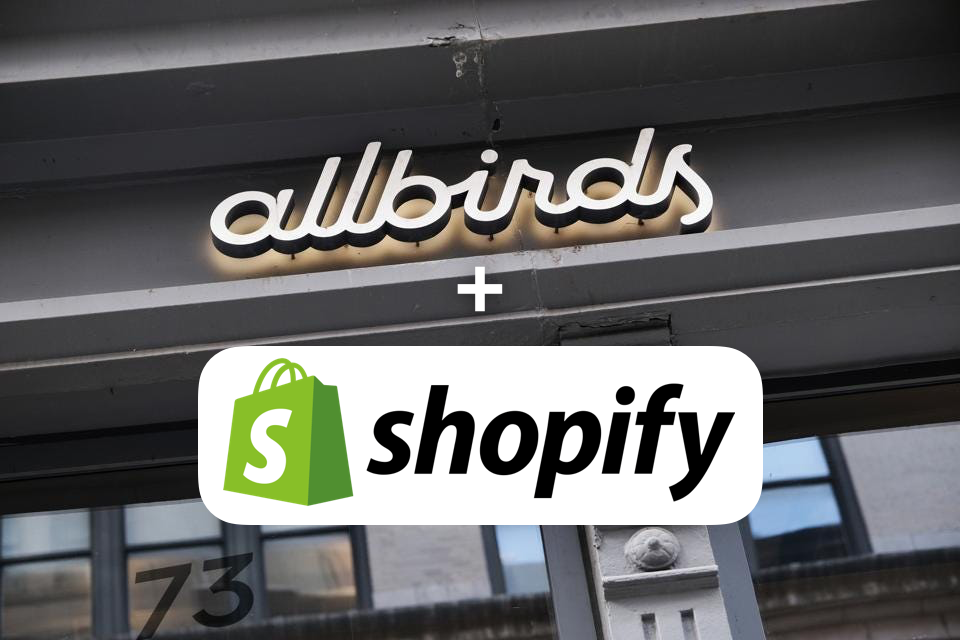This is a transcription of the podcast Tech News for MBAs, Season 2 / Episode 3. I recommend listening to it, but if you prefer reading, here it is! There has been some light editing to make it more readable, but it is almost verbatim to the podcast.
I don't know about you, but I'm a huge Allbirds fan. It's almost exclusively the shoe brand that I wear. In the winter, I have their wool waterproof shoes. In the summer, I have their tree based slip on shoes– incredibly comfortable. I wear their running sneakers when I work out. I'm all in.
This company is only five years old. It's really incredible how far they've come. When they premiered as a public company just yesterday, they were valued somewhere around $2 billion. The stock price shot up, and by my calculations that puts them somewhere around a market cap of $3-3.5 billion.
I think a lot of people were looking at this IPO to see an example of a leader in the space. There have been others, but not that many so far, where you have homegrown, direct to consumer e-commerce companies that are completely verticalized– meaning that they design and manufacture the products and sell them directly to their customers online.
Although Allbirds now does have in person retail experiences as well, but it's the sort of store where you try on and look at shoes there, and then you essentially just order it online, and they ship it to you.
But the question is, can this be a viable business? As a public company, can it continue to grow? How much headroom is there for a company like this, and how big is the market ultimately? If these first days of trading is any indication, they're off to a great start.
Allbirds is an interesting company. Besides the fact that they have these really unique products, they are a B corporation, meaning that they have built into the structure of the company a mission– around fighting climate change, around sustainable materials, around ethical issues like not using animal products (i.e. killing animals– wool of course, is sourced from animals). They have managed to build a sneaker empire (and now of course they've expanded into other sorts of apparel as well), but really doing it on their own terms and being able to scale a business that is not only a great product, but really has a strong mission behind it.
I teach a framework in my product management class at Columbia Business School called MGSOT: mission, goals, strategy, objectives, and tactics. To me, this company really exemplifies how you can take a mission, create a business strategy to support and fulfill that mission, and then really break that down into actionable, tangible goals and objectives that can be achieved, and to do all that without compromising on that top level mission.
Allbirds is a tech enabled company, but at its core, it's an apparel company. Why are we talking about it on this tech podcast? It's hard to say today what is tech and what is not. If you order a pizza online, is that pizzeria a tech company? We don't need to get into that debate, but there is a very real and clear tech company behind Allbirds, and that's Shopify.
Shopify, which has now been public for five or six years and is worth almost $200 billion, is the tech platform that Allbirds and over a million businesses like it are built on top of.
In a world where everyone had sort of assumed that the future of all e-commerce was Amazon, what Shopify has done is given birth to a brand that can operate fully online, and outside of Amazon.
The theme here is really about selling pickaxes in a gold rush. It used to be that in order to spin up a website where you could list products, manage your inventory, handle online payments, fulfill on the backend, have a customer database, handle returns, etc.– that was a very expensive and specialized sort of thing to do. And even the biggest companies in the world weren't doing it particularly well.
Amazon created what we know today as the gold standard for an e-commerce website. And what Shopify has done is essentially taken that blueprint and now given it to everyone in the world. You can go and start an e-commerce site today, and you will be using the same tools that Allbirds is using. And in many ways, the user experience of a Shopify powered website is now even better than Amazon.
Not only that, but from the business perspective, they own the relationship with the customer. They own their own payments. They own their own data. And they don't need to pay Amazon a cut. Shopify has started offering other sorts of services like fulfillment and warehousing and even banking services and small business loans, really creating almost a shadow offering of everything that Amazon can provide. But it's not amazon.com, it's yourcompany.com. And it's not an email receipt from Amazon, it's an email receipt from your company.
In every tech vertical, we see the push and pull between aggregators vs. owned and operated properties. An aggregator, being something like Apple News, in the world of news, vs. nytimes.com. An aggregator, being something like Hulu, in the world of entertainment, instead of installing the FX app to watch American Horror Story.
From the business perspective, owned and operated is almost always better. From the consumer perspective, aggregators make life easy.
But aggregators also tend to provide... customers! Discovery happens there, and just that influx of customers can be a big enough item on your pros list to counteract all the cons.
But here, the narrative is violated– Allbirds is only available at allbirds.com or at an Allbirds store. They're not in other retail stores. They're not at Amazon or any other aggregators. They don't discount. They don't offer Black Friday sales. Everything we knew about aggregators, everything we know about retail– it seems to not apply to brands like this.
And I think part of it is that they are creating a direct relationship with the customer, which is great. You get to own the customer data, yes, but it's more about the bond with the customer. It's about creating advocates out in the world. And when you create a bond with a customer, and that person is going out to dinner with their friends and telling them how amazing your brand is, how amazing your product is– nothing can replicate that. That’s very hard to achieve unless you have that direct line of communication, that direct relationship.
And if your brand becomes embedded in the identity of your customer... I'm the sort of person that wears Allbirds. I believe in the same things that Allbirds believes in. When I see other people wearing Allbirds, I feel connected to them.
That is an incredibly powerful to have in a business. It is a sort of growth engine that fuels itself. And again, not to take anything away from Allbirds and its amazing founders, but it is made possible by a platform like Shopify.
I think we're just seeing the first wave of these big direct to consumer e-commerce websites, powered through platforms like Shopify, rather than being built from scratch, that are now starting to IPO, go public, become huge companies in their own right. How many multi-billion dollar companies are going to be spawned from that one multi-billion dollar company called Shopify?
So in summary, we've got a mission-driven business. We have this idea of building advocacy with your customers and owning that relationship with them and really making your brand part of their identity. And then we have the amazing power of a democratizing technology like Shopify that allows for business like Allbirds to exist in the first place.
Subscribe to Tech News for MBAs
Apple Podcasts
Spotify
Other links
Disclaimer: I hold $SHOP. This content is for informational and entertainment purposes only and is not financial advice.






